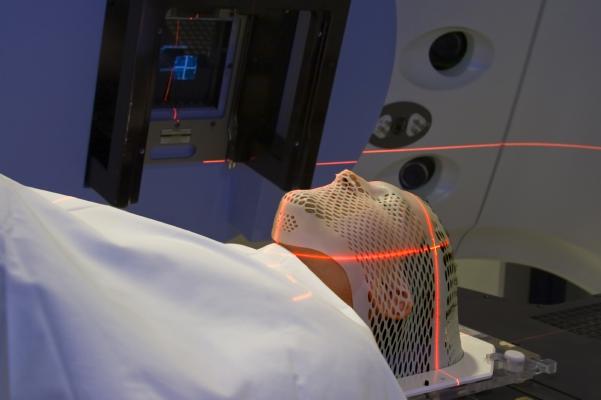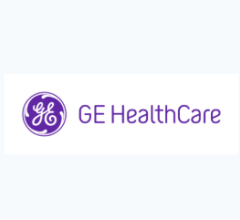
May 9, 2017 — More than 100 radiation oncologists from across the United States took to Capitol Hill last week urging Congress to grow its investment in cancer research and to protect patients’ access to high-quality cancer care. The doctors were in Washington to meet with Congressional leaders as part of the 14th annual Advocacy Day organized by the American Society for Radiation Oncology (ASTRO).
Radiation oncologists emphasized four priorities as they met with policymakers and their staffers:
- Supporting cancer research by increasing the National Institutes of Health (NIH) budget by $2 billion;
- Avoiding disruptions in health insurance coverage for cancer patients;
- Preserving patients’ access to quality healthcare by stabilizing Medicare payments while pursuing innovative models of physician reimbursement; and
- Protecting access to radioactive isotopes.
Federal investment in cancer research has played a role in every major innovation in the fight against cancer and has led to a decline in the overall number of cancer deaths in the United States, yet funding for cancer research is under threat, according to ASTRO. President Trump’s proposed 2018 budget would cut $6 billion from the $32 billion earmarked for NIH, which could lead to a roughly 20 percent cut in the National Cancer Institute’s (NCI) budget. This drastic cut would derail the progress toward improved outcomes for cancer patients and cause leading scientists to leave the cancer research field, the association said. Cuts also would erase the commitment Congress made in late 2016 by passing the 21st Century Cures Act, which was widely supported, bipartisan legislation that pledged nearly $5 million in additional support for the NIH.
“There are more than two hundred types of cancer, and only through research can we learn which treatments, including radiation therapy, will be most effective to fight the many different forms of this illness. We ask that Congress reject proposed cuts to federal cancer research funding and instead support an increase in the budget to eradicate cancer,” said Brian Kavanagh, M.D., MPH, FASTRO, president of ASTRO and chair of the department of radiation oncology at the University of Colorado School of Medicine.
As Congress and the administration debate the future of American healthcare, ASTRO members are encouraging policymakers to prioritize reforms that avoid coverage disruptions for cancer patients. Studies have demonstrated that a lack of adequate health insurance leads to delayed diagnosis and treatment, resulting in higher mortality rates. Inadequate coverage also leads to higher costs that are felt throughout the economy.
ASTRO strongly supports bipartisan solutions that protect cancer patients from losing their health insurance or not being approved for coverage following a cancer diagnosis, including maintaining bans on pre-existing condition exclusions and annual and lifetime caps; preserving guaranteed issue and guaranteed renewability provisions; and safeguarding access to clinical trials.
ASTRO members also are urging Congress to protect access to care by stabilizing Medicare reimbursement rates and fully supporting the transition to a health system that rewards quality over quantity. Congress unanimously passed the Patient Access and Medicare Protection Act in 2015, freezing payment rates for key radiation treatment services in freestanding clinics through 2018 at levels set in 2016 and requiring the Secretary of Health and Human Services (HHS) to report to Congress on the development of alternative payment models (APMs) in radiation oncology. With the support of key Congressional leaders, ASTRO has been working on the development of an APM that incentivizes adherence to nationally-recognized clinical guidelines through an episode-based payment framework across five primary cancer sites: breast, lung, prostate, colorectal, and head and neck.
“When Medicare inappropriately ratchets down on payments for cancer treatments, it jeopardizes whether patients have access to the care they need,” said David C. Beyer, M.D., FASTRO, chair of the ASTRO Board of Directors and medical director of Cancer Centers of Northern Arizona at Sedona. “In the past decade, radiation oncologists in community-based practices have sustained as much as a 20 percent drop in their Medicare payments. We’re urging Congress to prevent additional cuts and support physician-led efforts to drive value-based care.”
Finally, ASTRO members are advocating to preserve access to radioactive isotopes. Any effort to abandon radioactive source-based technology in healthcare would limit patients’ access to certain radiation therapy treatments, which could interfere with treatment decisions and result in higher mortality and recurrence rates. A recent Nuclear Regulatory Commission analysis found no violations with safety or security consequences over the past 30 years, demonstrating the culture of safety and security among domestic radioisotope users. Moreover, radiation oncologists and medical physicists receive extensive training in the safe use and security of radioactive isotopes. ASTRO members are urging Congress to reject attempts to limit access to radioactive isotopes and promote policies that enhance the safe and effective use of these materials.
For more information: www.astro.org


 January 30, 2026
January 30, 2026 









